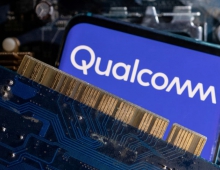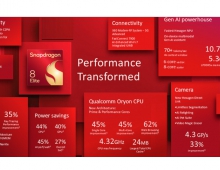
Qualcomm, Nokia Deal Ends Long Legal Battle
Nokia and Qualcomm today announced that they have entered into
a new agreement covering various standards including GSM, EDGE,
CDMA, WCDMA, HSDPA, OFDM, WiMax, LTE and other technologies.
The agreement will result in settlement of all litigation
between the companies, including the withdrawal by Nokia of its
complaint to the European Commission.
The deal, which ends all legal cases between the two firms, covers the world's most widely used mobile phone technologies and some key emerging ones.
Under the terms of the new 15 year agreement, Nokia has been granted a license under all Qualcomm's patents for use in Nokia's mobile devices and Nokia Siemens Networks infrastructure equipment. Further, Nokia has agreed not to use any of its patents directly against Qualcomm, enabling Qualcomm to integrate Nokia's technology into Qualcomm's chipsets. The financial structure of the settlement includes an up-front payment and on-going royalties payable to Qualcomm. Nokia has agreed to assign ownership of a number of patents to Qualcomm, including patents declared as essential to WCDMA, GSM and OFDMA. The specific terms are confidential.
"We believe that this agreement is positive for the industry, enabling the market to benefit from innovation and new technologies," said Olli-Pekka Kallasvuo, CEO of Nokia Corporation. "The positive financial impact of this agreement is within Nokia's original expectations and fully reflects our leading intellectual property and market positions."
"I'm very pleased that we have come to this important agreement." said Paul Jacobs, CEO of Qualcomm. "The terms of the new license agreement, including the financial and other value provided to Qualcomm, reflect our strong intellectual property position across many current and future generation technologies. This agreement paves the way for enhanced opportunities between the companies in a number of areas."
Qualcomm chip customers include Samsung Electronics and LG Electronics. Rivals include Texas Instruments, Broadcom Corp and Infineon Technologies AG.
The deal, which ends all legal cases between the two firms, covers the world's most widely used mobile phone technologies and some key emerging ones.
Under the terms of the new 15 year agreement, Nokia has been granted a license under all Qualcomm's patents for use in Nokia's mobile devices and Nokia Siemens Networks infrastructure equipment. Further, Nokia has agreed not to use any of its patents directly against Qualcomm, enabling Qualcomm to integrate Nokia's technology into Qualcomm's chipsets. The financial structure of the settlement includes an up-front payment and on-going royalties payable to Qualcomm. Nokia has agreed to assign ownership of a number of patents to Qualcomm, including patents declared as essential to WCDMA, GSM and OFDMA. The specific terms are confidential.
"We believe that this agreement is positive for the industry, enabling the market to benefit from innovation and new technologies," said Olli-Pekka Kallasvuo, CEO of Nokia Corporation. "The positive financial impact of this agreement is within Nokia's original expectations and fully reflects our leading intellectual property and market positions."
"I'm very pleased that we have come to this important agreement." said Paul Jacobs, CEO of Qualcomm. "The terms of the new license agreement, including the financial and other value provided to Qualcomm, reflect our strong intellectual property position across many current and future generation technologies. This agreement paves the way for enhanced opportunities between the companies in a number of areas."
Qualcomm chip customers include Samsung Electronics and LG Electronics. Rivals include Texas Instruments, Broadcom Corp and Infineon Technologies AG.





















